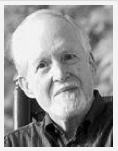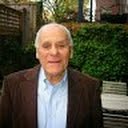Aubrey Brown (Nigeria 1961-63) dies in Boston
RPCV Aubrey Neblett Brown III (Nigeria 1961-63), who is perhaps the first PCV ‘hero’, died on February 14 in Boston. He was 78.
A celebration of Aubrey’s life will be held at 11 a.m. Saturday at Second Presbyterian Church in Richmond, Virginia. The family will receive guests beginning at 10 a.m. in the Chapel. In lieu of flowers, the family asks that donations in Aubrey’s name be made to World Student Christian Federation, USA, c/o Rev. Jorge Domingues, 475 Riverside Drive, Suite 1473, New York, NY 10115, or World Can’t Wait, 305 West Broadway, #185, New York, NY 10013.

Aubrey Brown
Several years ago Murray Frank (Nigeria and HQ Staff 1961-64) wrote the story of Aubrey’s involvement in the famous ‘postcard’ incident for the Nigeria RPCV newsletter. Here is Murray’s account of what took place in Ibadan, Nigeria.
•
Nigeria in those first days of the Peace Corps
by Murray Frank
October 14, 1961, was the day the postcard affair began…the day that Peace Corps Nigeria almost came to an end before it started.
Nigeria I had been in Ibadan for only a week or two. Training that had started at Harvard was continuing at the University of Ibadan, then the University College of Ibadan and part of the University of London. Volunteers were living at the University, a few in several dorms.
I was the Western Region Representative. My family and I arrived only a few weeks before the Volunteers. The other regional reps were to follow soon. Brent Ashabranner had earlier left AID to become the first Peace Corps Director and helped us settle into a house in Boudeja, the middle-class development between Ibadan center and the university. Not quite the Peace Corps mold, but comfortable for a family with children aged two and four. Dave Sealey, the Harvard training representative, and his family were housed nearby.
I had nothing to do with the training. My job was to arrange volunteer assignments: visit a potential location, meet the principal and staff, establish that there was a vacant position that a Volunteer could fill, and check out living conditions. I had not gotten very far by Friday, October 13. But, I was getting to know the Volunteers as assignments developed.
Congresswoman Claire Bolton came to Ibadan October 12; she had been visiting Peace Corps sites for the House Foreign Affairs Committee. My wife Ginna and I arranged for her to meet at our home with a group of Volunteers. They were quite impressive. As she left full of good cheer, she leaned out of her car window and said what a great job they were doing, and “See you in the newspapers.”
Volunteers went to classes Monday through Saturday mornings. Friday night, October 13, PCV Marjorie Michelmore wrote some letters and postcards to the folks back home. She mailed them on the way to class Saturday morning. One of the cards was to a friend, describing Marjorie’s first impressions.
When the Volunteers arrived at their dorm dining rooms for lunch on Saturday, October 14, a word-for-word copy of that postcard was at each place. Marjorie’s comments described how the average Nigerian lived. While not inaccurate, her comments were not flattering, and to a Nigerian student-especially one concerned about Western imperialism-the comments seemed downright insulting.
A couple of the Volunteers hitched a ride from the university to bring me the news. Protest rallies were beginning to take place on the campus. Volunteers were being ostracized. This was clearly not a training issue. Now, I was in charge-God help me!
I arranged for all of the Volunteers to come to my house; then, went to the USIS Library to phone Lagos. I didn’t have a phone. I told Ashabranner what I knew; he cabled Peace Corps Washington.
By coincidence, the second in command at the American Embassy, the Deputy Chief of Mission, was on his way back to Lagos from a trip up North when the story broke. I met him at a local rest house with Marjorie and we agreed that she would go with him to Lagos. There was an AP stringer at the rest house. He could see that something was up.
I went home to meet with Nigeria I. We talked that afternoon and again on Sunday. We needed to talk more; also, it was good for Volunteers to get away from the hostility on campus. Ginna fed us all.
All the Nigerian Sunday papers carried articles with the postcard text and editorials about it. The story hit American, press thanks to that AP stringer.
The postcard was mailed 38 years ago. The memory is older than any of us were then, but it is still vivid. Beyond the fact that I was unprepared for the responsiblity, the affair was a powerful experience for many reasons. Three things stand out.
First, is the intensity of the university students’ feelings. Nigeria was newly independent, but I don’t know if we fully absorbed how deeply this fact influenced Nigerian behavior. If we had, the Volunteers and I might have better understood, perhaps even sympathized with, the students’ passions. The signs of the colonial period were still all around; white people especially symbolized a colonial past. But a Nigerian self-image of freedom was developing.
Nigerians-or at least this group of young intellectuals-demanded respect. I understood it better after attending the ceremonies when University College of Ibadan became the independent University of Ibadan. Nnamdi Azikiwe (Zik), the father of independence, was the main attraction. When it was his turn to speak, the electricity in the crowd was palpable. I still remember that z-z-Z-Z-Z-Z-ZIK cheer wherever he went. Zik insisted that the University of Ibadan was “our” university, free of London’s influence, part of Nigeria’s development. It was thrilling-the closest I had ever come to intense nationalism.
On October 14, 1961, we confronted that spirit for the first time. All of us had experienced student protests in the States. But this was quite different. It was not really about a postcard. We knew there were those who opposed foreigners invading their country, and those who would use the incident for their purposes. But, we felt, most feared that “these Americans will not really be able to help if this is how they write home about us”.
Second was the group of Nigerians who had been trained in America. British-trained Nigerian professionals received preferential treatment by the English for employment and advancement during the colonial period. With independence, the American-trained Nigerians organized and worked to gain recognition. The Nigerian-American Society defended us in meetings and letters to the editor. It offered friendship and helped to change the climate.
I remember particularly H. A. Oluwasanmi, who taught agronomy at the University of Ibadan and later was Chancellor at the University of Ife. His support and advice on how to understand the situation was invaluable. Richard Taiwo, an engineer in one of the Western Region ministries, was a likeable, garrulous supporter-praising the Peace Corps everywhere. He helped organize a party for us at a very visible Ibadan Club-with plenty of Star beer and Highlife.
Another outspoken and effective supporter was Tai Solarin, principal of the Mayflower School, which he founded and named for our Mayflower. Without the support and advice from the Nigerian-American Group, the storm would have been far more difficult to weather.
Third, was the spirit and maturity of the Volunteers. We were young. I believe I was the oldest at 34. We were newly-transplanted into a very different culture, confronted with a situation with which none of us had any experience. All of Nigeria I crowded into my living room that weekend and we talked for hours.
Initially, there was anger-at Marjorie for getting us into this, at the Nigerians for making so much of the postcard and holding us all responsible for one person’s comments. We wondered if we should issue a statement disassociating ourselves from it. To whom? How? We got by that quickly and went on to try to examine how representative these students and their feelings were of the country and especially of the people we would be working with.
We tried to answer many questions: what were we doing here; should we leave, as many Nigerians and newspaper editorials demanded; should we try to stay and prove that we belonged and had something to give? Did we really have a choice; wasn’t the possibility of success already compromised? These were questions for us to answer.
We knew Nigeria needed teachers. We could teach. We were not imperialists, nor CIA agents, nor ugly Americans. We knew who we were. We could make a difference.
There were no directives or advice from Washington or our Embassy. As best I can remember, the only message from Washington was a cable from the State Department. It asked if there were really 250 words on one half of one side of the postcard.
We were agitated, but the discussion was mostly calm, always serious; it was hard work. Consensus was a long time in coming. I saw my role as the discussion leader. The Volunteers were the folks who would be on the firing line. They had to decide for themselves what to do.
After many hours, we made a decision. We wanted to stay; we could do the job, and by doing it, would earn respect.
The Volunteers continued to take some meals and sleep at the university dorms, but were always isolated. One Volunteer, Aubrey Brown, had experience in non-violent resistance. He told the Nigerian students in his dorm that he would not eat if he couldn’t eat with them. After a while, when they saw he meant it, they brought a dinner tray to his room; he refused it. They soon invited him to join them at meals. Other PCVs and students did the same, and dialogue began between the students and the Volunteers-probably more valuable than had the incident not taken place.
The behavior of the Volunteers during this period was special. They remained calm and were not retaliatory with Nigerians who taunted them. These young men and women balanced individuality with group allegiance, knowing that the issues were not personal. They were reasonably self-confident and able to listen and learn.
I assume that there will be PCVs going to Nigeria soon. I hope they will be as good as Nigeria I volunteers were. They couldn’t be better.
•

- Murray Frank
Editor’s Note: After a final year at Peace Corps Washington, Murray taught community organization and did Peace Corps India training at Columbia University before earning a PhD in social policy administration at Brandeis’ Heller School. He taught at Rutgers and the University of Massachusetts, and designed career development training programs for the New York City municipal employees union. He is now reitred and lives on Martha’s Vineyard where he gardens, does woodworking, and is active in an effort to create a single-payer health care system for the Island.
Everything was going so swimmingly well for the PC in the early days, it was a crummy little postcard that made inordinate headlines, and even fostered a Broadway play!
Murray Frank’s article highlights Aubrey Brown’s principled stand but more importantly, it reveals the spirit, tenacity and open-mindedness of the young Nigeria I volunteers that enabled them to turn a crisis into a meaningful dialogue and experience for them and Nigerian students.
Thank you, Murray Frank, for posting Aubrey Brown’s obit and the “postcard” incident, with the whole story. As Aubrey’s oldest sister, next after him, (there were 8 sibs), I remember this vividly. During this incident the little tidbit I remember, amidst the sadness of it all, was my mother saying “How will Aubrey get through this without peanut butter or a piano?” The Peace Corp changed his life forever. We’ll be celebrating our leader this week-end.